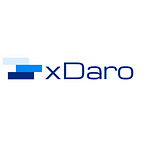The World Economic Forum, in collaboration with Wharton Blockchain and Digital Asset Project, has created and published a Decentralized Finance Policy-Maker Toolkit. It aims to “highlight DeFi’s distinguishing characteristics and opportunities while also calling attention to new and existing risks — including the scope, significance, and challenges of the fast-growing DeFi ecosystem.”
In one of our blogs back in March, we talked about how to understand DeFi — what it is, what benefits DeFi and dapps bring, and what the potential for DeFi is in the near future. In this blog, we will look more in-depth into the information on the Policy Maker Toolkit.
What are DeFi service categories?
The Toolkit has identified DeFi core functions that are analogous to centralized finance. The mentioned categories are generic and should not be considered as regulatory classifications. Some of the service categories are:
- DeFi Stablecoin — there are two forms of stablecoin meeting the DeFi requirements. One of them is asset-backed stablecoins that use smart contracts. The other is algorithmic stablecoins that attempt to maintain the peg through dynamic expansion and contraction of token supply.
- DeFi Exchanges that involve stablecoins or floating-value tokens are DeFi services because they do not take custody of user funds and may not control other aspects of the process.
- DeFi Derivatives — they can be programmed and composed into virtually any configuration. It could create a synthetic asset that behaves like a stock, commodity, swap, or another digital asset.
- DeFi Insurance — transactional and governance systems are used to manage and structure the insurance life cycle for certain types of risks, such as smart contract hacks.
What are DeFi policy approaches?
In the Policy approaches section, the DeFi Toolkit outlines the main areas in which DeFi may interact with policy and regulation. It is important to note that jurisdictions vary in their objectives, regulatory regimes, and market composition. When defining a policy approach, it is significant to take into account the fact that DeFi can both introduce new risks and may help mitigate known risks in financial services. Many of the key challenges are extensions of issues for all digital assets. The Toolkit has a separate section on policy tools, a decision tree, and a policy-maker canvas to help take a structured approach.
The Toolkit is a valuable resource and a starting point for policy-makers seeking to understand the risks and opportunities posed by DeFi businesses and services. You can find more in-depth and specific information on the Toolkit.
Sources:
DeFi Policy-Maker Toolkit
